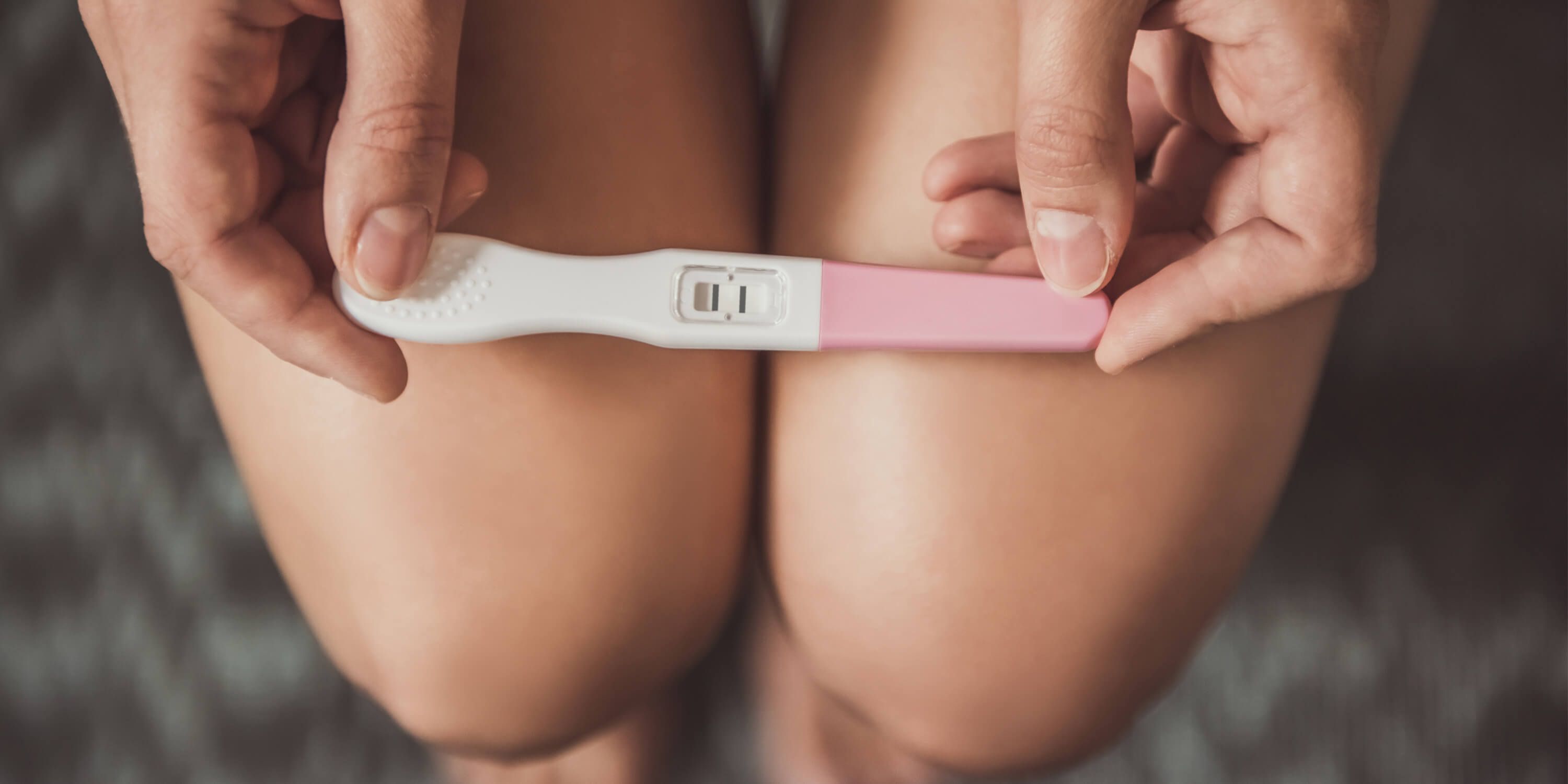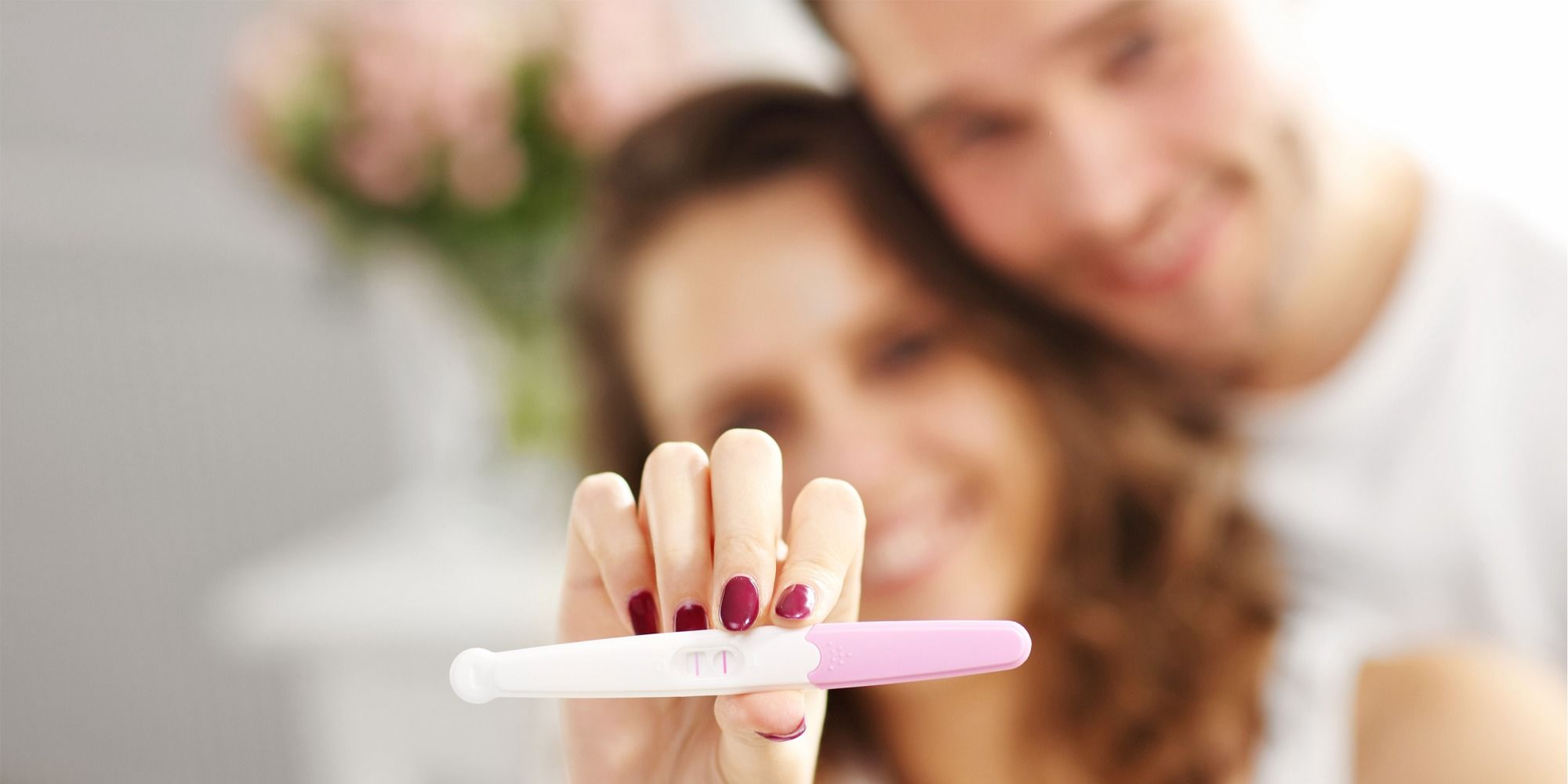In the 5th week of pregnancy, your baby is actually three weeks old and has finally been "drawn into" the uterus. Read on to discover when it is worth taking a pregnancy test, why your little one now looks like a little UFO and other things that still need to happen at the start of the first trimester.
What's going on inside you right now?
The embryo has made itself nice and comfy in the uterus and its development is going full steam ahead. The blood vessels and nervous system are forming, along with the heart, lungs, intestines and sex organs. There is not yet a lot to notice, however, as your little miracle consists of just three layers (the embryonic layers) and looks something like a UFO – at the start it looks like a tiny oval disc, roughly the size of an orange or apple pip, and gradually transforms into a small worm-shaped being.
Your baby is now the size of a small orange pip.

As before, the ultrasound will only show the amniotic cavity; it looks like a black dot roughly 1 cm in size inside the uterus.
The yolk sac is currently still nourishing the embryo. The placenta won't take over the job until later. The umbilical cord is now present as a tiny attachment.
How Do You Feel at 5 Weeks Pregnant?
Most expectant mothers can now look forward to a positive pregnancy test since the embryo is causing production of the HCG pregnancy hormone (human chorionic gonadotropin) to be ramped up. So there will be no menstrual bleeding.
The HCG is excreted in the mother's urine, which is why pregnancy tests will now show that you are pregnant. Modern tests with a digital display are even able to give an approximate indication of the pregnancy week based on the HCG concentration in the urine.
A mucus plug seals the cervix to protect the embryo from germs.
The following signs of pregnancy may occur:
- Fatigue: Your body is working flat out. The hormones are changing. More and more progesterone is being released, which may also explain why you feel exhausted.
- Tugging sensation in the lower abdomen: Some mums-to-be worry about the pinching and tugging in their belly since it can feel as though a period is due. Actually, what is happening is the "conversion work" for the pregnancy. The uterus is getting bigger and the broad ligaments are stretching. You might feel this in the form of slight cramps. However, if you are unsure, consult your doctor.
- Sensitive nipples, painful breasts: Many women soon become sensitive to touch in the breast area or start to find underwired bras uncomfortable. Pressure-sensitive points can also occur.
- Constipation: The progesterone can make the gut sluggish. Make sure you have regular bowel movements, a high-fibre diet and drink plenty of liquids.
- Sickness or nausea: It is thought that the HCG is responsible for many of the "usual" pregnancy complaints. These can include the following:
- Blocked nose
- Elevated temperature
- More frequent urge to urinate
- Ravenous appetite
- Food cravings or aversions
If you have not yet done so, now is a good time to make an appointment to see your midwife.
Light bleeding or spotting is possible as a consequence of implantation and the changes in the uterus and cervix. Seek medical advice if you are in any doubt and look after yourself.
If you are on any medication, you should speak with your doctor about whether you need to stop the medication, change to other medications or adjust the dosage. Do not stop taking medications without medical guidance. The same applies to herbal remedies, which could also have side effects that might harm you or your baby.
Unfortunately, these are things you might need to get used to; as they are all part of your pregnancy journey.
Photo Credit: Shutterstock




























